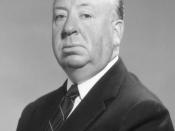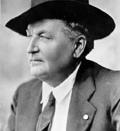Considered by many to be Alfred Hitchcock's greatest film of all time, Vertigo successfully creates a state of mental paralysis as the audience moves through John Ferguson's (Scotty's) world. In an essay on Vertigo, Robin Wood discusses the actual state of mental paralysis that the condition of vertigo creates: "The sensation has been explained, I believe, by psychologists as arising from the tension between the desire to fall and the dread of falling."� (Hitchcock's Films Revisited, p.110) Not only does Hitchcock brilliantly portray Scotty's actual condition of vertigo, he also thematically keeps the audience "paralyzed."� In his narrative framing, he prepares us for this. In the prologue, Scotty is left hanging onto a gutter, and we never discover how he manages to get down. In the conclusion, Scotty is left standing in the bell tower, again paralyzed while looking down from a great height. This is exactly where Hitchcock keeps us throughout the length of the film: suspended.
Mentally, Scotty never regains his "grounding,"� and neither do we. Through his various techniques Hitchcock also establishes the theme of women's intangibility. This is caused in part by men's need to construct femininity (thereby restraining women). This is also the basis for much of Scotty's mental paralysis, as he longs for the object of his affection, but she is always out of reach.
There are many narrative elements that contribute to the theme of men's reconstruction of femininity. In the first scene after the prologue, Scotty is complaining about having to wear a painful corset, and asks Midge if many men wear corsets. He recognizes this is a tool created to restrain women. In the same scene he inquires after a model for a new bra. We find out that it is created by an architect, a man seeking to...


